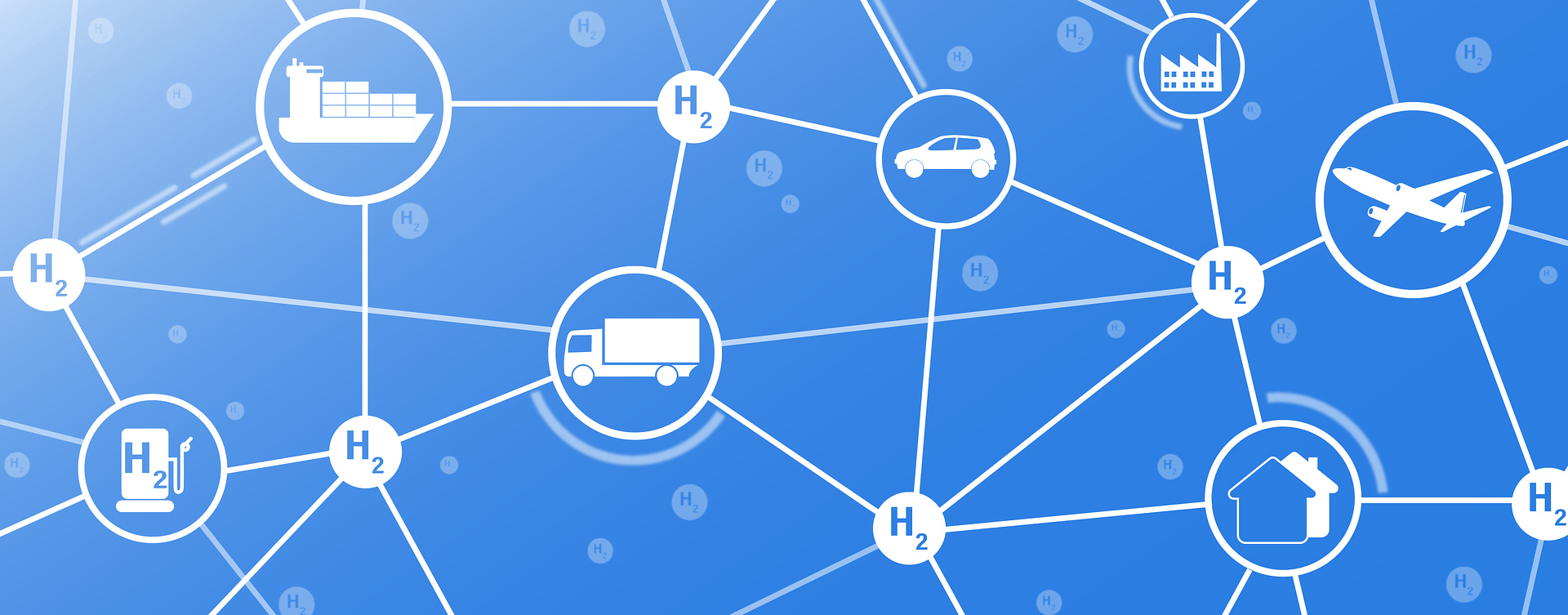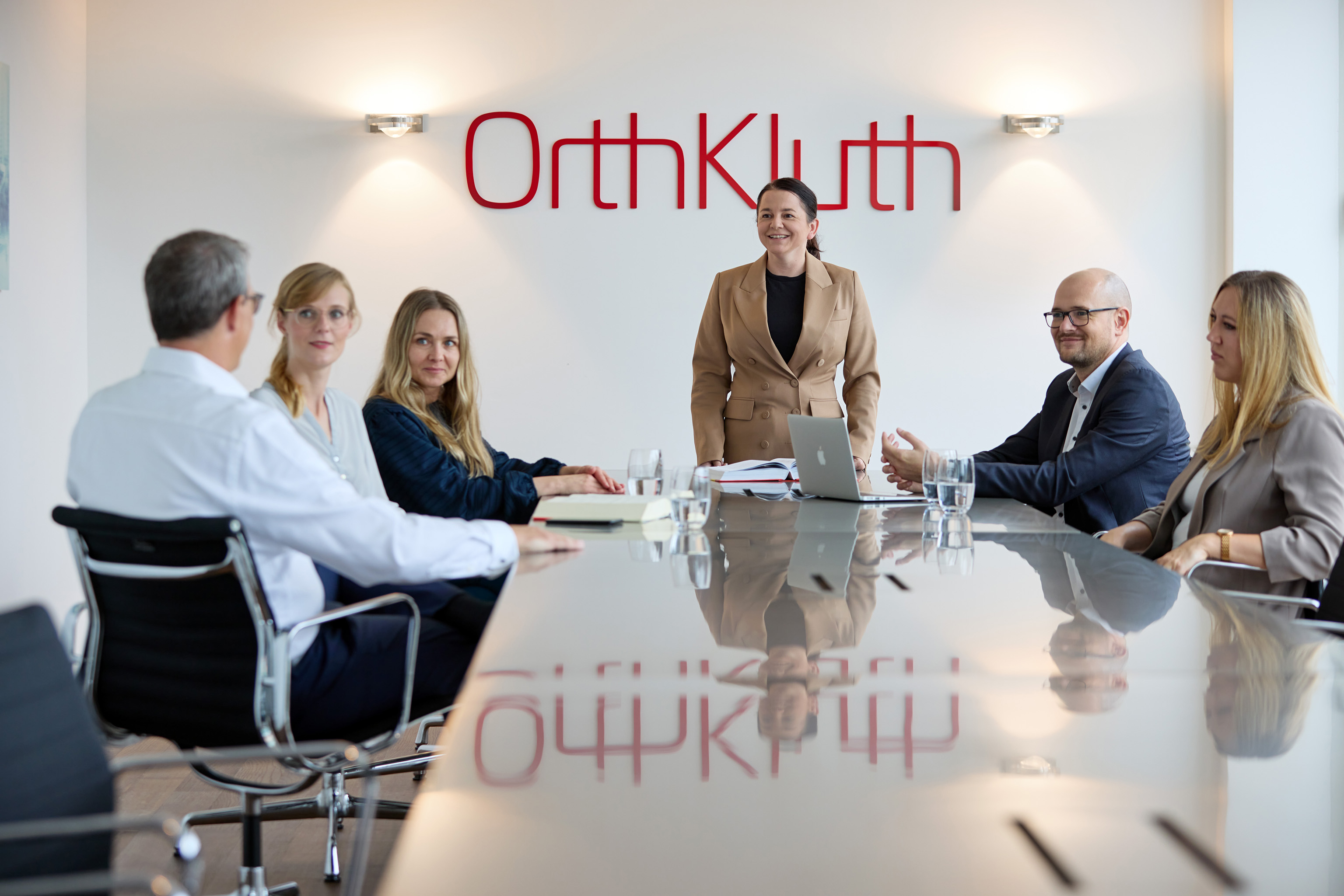
Hydrogen is a decarbonisation driver
The topic of hydrogen isn’t just widely discussed in the social debate on climate change, it has also taken on new significance in connection with carbon certificate price increases, as well as future production location and profitability issues affecting the manufacturing and transport sectors.
In June 2020 the German Hydrogen Strategy was launched as a key element of the country’s transition to non-fossil-based energies. The Hydrogen Strategy sets out the German government’s roadmap for creating a domestic market for the production and use of hydrogen. In particular, it envisages the short- to medium-term roll-out of hydrogen technology and the development of the necessary facilities to generate H2 from renewable energies. One month later the European Union published its Green Deal, a framework for a European Climate Act, measures to promote the sustainable use of resources and a hydrogen strategy.
Green, blue and turquoise hydrogen
One of the central components of the decarbonisation strategy is green hydrogen, which is produced by splitting water into hydrogen and oxygen using wind, hydro or solar power. This process works on the basis of electrolysis, so we have to leverage additional electrolysis capacity to produce hydrogen with electricity from renewable energies. Another obstacle is that Germany does generate sufficient renewable energy to produce hydrogen in the necessary quantities, so imports will be essential to meet the manufacturing and transport sectors’ requirements.
There is talk of using blue and turquoise hydrogen as an interim or bridging solution. Blue hydrogen is produced from natural gas with carbon capture and storage, whereas turquoise hydrogen is produced by a process called methane pyrolysis, which involves the thermal decomposition of methane into hydrogen and carbon, with solid carbon as the by-product.
The main difference between the German and the European hydrogen strategies is their positions on carbon capture and storage in the production of low-carbon hydrogen. The EU accepts and recognises the necessity of incremental development phases, whereas Germany takes a negative view of the production of blue hydrogen. We will have to wait and see whether a political and social rethink will take place that makes blue hydrogen acceptable as an interim solution.
Focus on: manufacturing and transport
Many sectors of industry would be able to reduce carbon emissions with green, turquoise or blue hydrogen. Steel and cement manufacturing plants, in particular, could potentially achieve substantially lower carbon emissions through the use of direct reduction plants.
The transport sector could also improve its carbon footprint significantly by introducing fuel-cell vehicles for heavy cargo and long-haul traffic, or in shipping. The first hydrogen-powered buses and trains are already in operation in many German federal states. We provided comprehensive advice to the states of Lower Saxony, Hesse and Saxony.
In the future hydrogen applications in buildings, aviation and power generation are feasible.

The current legal framework for hydrogen
As with all new technologies, both the legislators and the affected industries face the challenge of establishing a suitable legal and regulatory framework. It will be necessary to harmonise laws and adapt existing regulatory systems at national and European level, and to keep the market players up to date on new developments and necessary decisions.
In Germany the Federal Network Agency is responsible for hydrogen grid regulation. Last year it initiated a consultation process and called for a new hydrogen infrastructure law with supplementary regulations or alternatively a separate section on hydrogen in the German Energy Management Act as a result of the significant loopholes in existing legislation. This holistic approach was largely rejected by the market players in favour of a successive regulatory framework that can be adapted incrementally to the needs of the hydrogen market within the existing gas grid regulatory framework. The German government adopted this recommendation when it amended the Energy Management Act in February 2021. The Bundesrat passed the law on 25 June 2021 and it entered into force on 27 July 2021. The European Commission will present proposed legislation by the end of 2021.
Full service and extensive industry knowledge
Orth Kluth has many years of experience of advising manufacturing enterprises and transport sector companies, including local and long-haul transport operators, rail freight companies, as well as public rail, bus and tram service providers. Over the years we have acquired special consulting expertise on the use of alternative drive technologies such as hydrogen and e-mobility, the associated charging infrastructures and battery technologies.
We have advised and represented many well-known companies in the sector in various constellations, from start-ups to international steel manufacturers, municipal transport companies and private bus operators, national and private railway operators, the market leader in the private rail freight sector, public sector organisations and infrastructure operators. We know the market and we have been monitoring the key developments for many years.
Our ‘hydrogen’ specialists are part of an interdisciplinary team with members from all relevant practice groups to ensure across-the-board competent advice on hydrogen-related issues. We unite legal expertise with sector competence and best practices. Our clients know they can depend on us as a full-service law firm with specialist know-how and experience.
We support our clients with regulatory and energy law issues, national and European public tender and subsidy law, contract law, liability law (claims processing), IP/IT law, environmental, construction and planning law, and in connection with financing, including commercial law aspects. In complex projects we have access to a network of external specialists in the fields of private real estate and construction law, insurance law, compliance, bankruptcy law and employment law.

Our specialisations
We advise our clients on all issues relating to hydrogen. Our manufacturing and transport sector expertise, and our awareness of the challenges our clients face on a day-to-day basis, enables us to take a holistic approach. On that basis we deliver practical advice and solutions that focus on the client’s long-term business performance.
The scope of our advice includes:
- The design and implementation of Europe-wide tender processes for vehicles, charging infrastructure, construction and planning services, raw materials etc.
- Subsidy and state aid-related issues, irrespective of whether they relate to German and/or European funding programmes.
- Energy law aspects (German Energy Management Act, EnWG), particularly relating to grid access, grid use and infrastructure challenges (in the region and on site) as well as apportionment privileges (particularly under the German Renewable Energies Act, EEG).
- Procurement of vehicles with alternative H2-drive technology.
- Hydrogen supply contracts.
- Contract-related issues along the entire hydrogen supply chain.
- Special consumption-related regulations, particularly relating to the decarbonisation of industrial processes.
- Design and implementation of a legal and regulatory framework for hydrogen supplied to companies.
- Implementation of hydrogen-based transport and closed loop concepts.
- Concept development and legal support in R&D projects.
- Design and negotiation of R&D cooperation agreements, taking antitrust and state aid implications into account.
- Contractual challenges relating to the building and operation of electrolysers, including force majeure and other non-performance factors.
- Planning, approval, construction and operation of the hydrogen infrastructure (charging infrastructure, storage infrastructure, pipelines).
- Blue hydrogen production projects.
- Power-to-X projects.
- Cooperations and joint ventures to explore and leverage opportunities in the hydrogen sector.
- Structuring, drafting and negotiation of technology licensing agreements.
- Advice on trade secret violations.
- Freedom-to-operate analyses, evaluation of obstructive third party rights and the necessary solution strategies.
- Advice on the development and implementation of innovation protection strategies.


